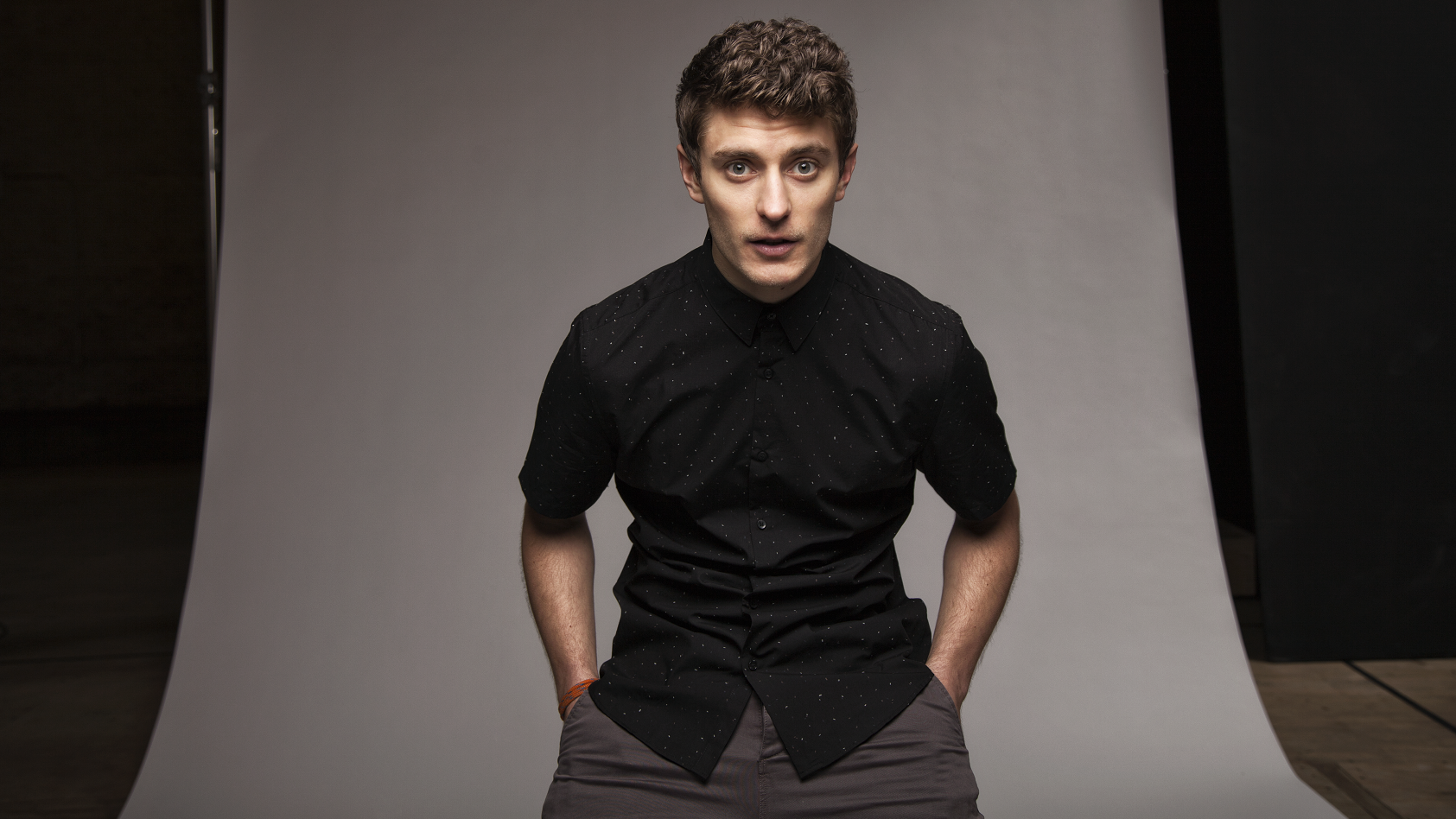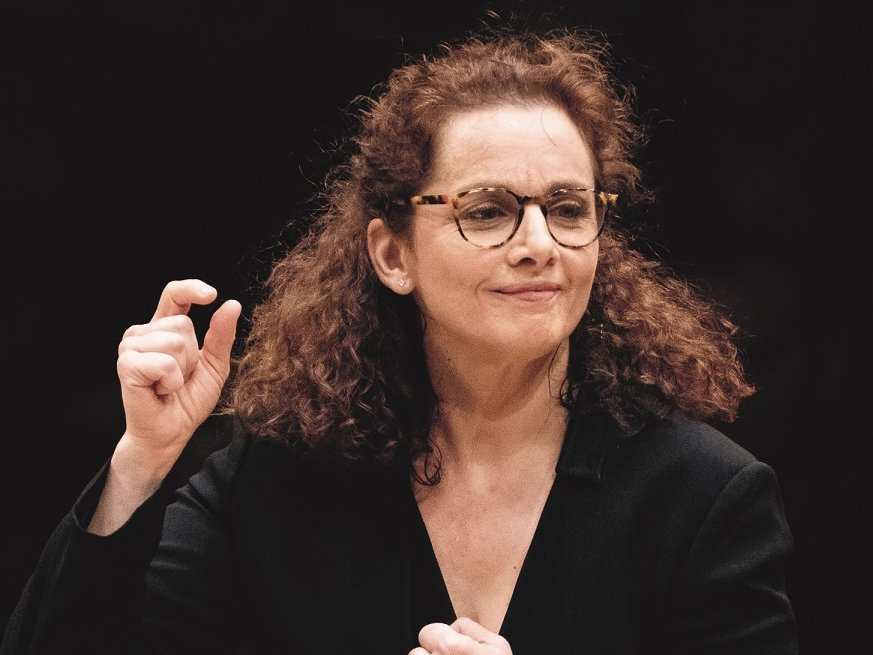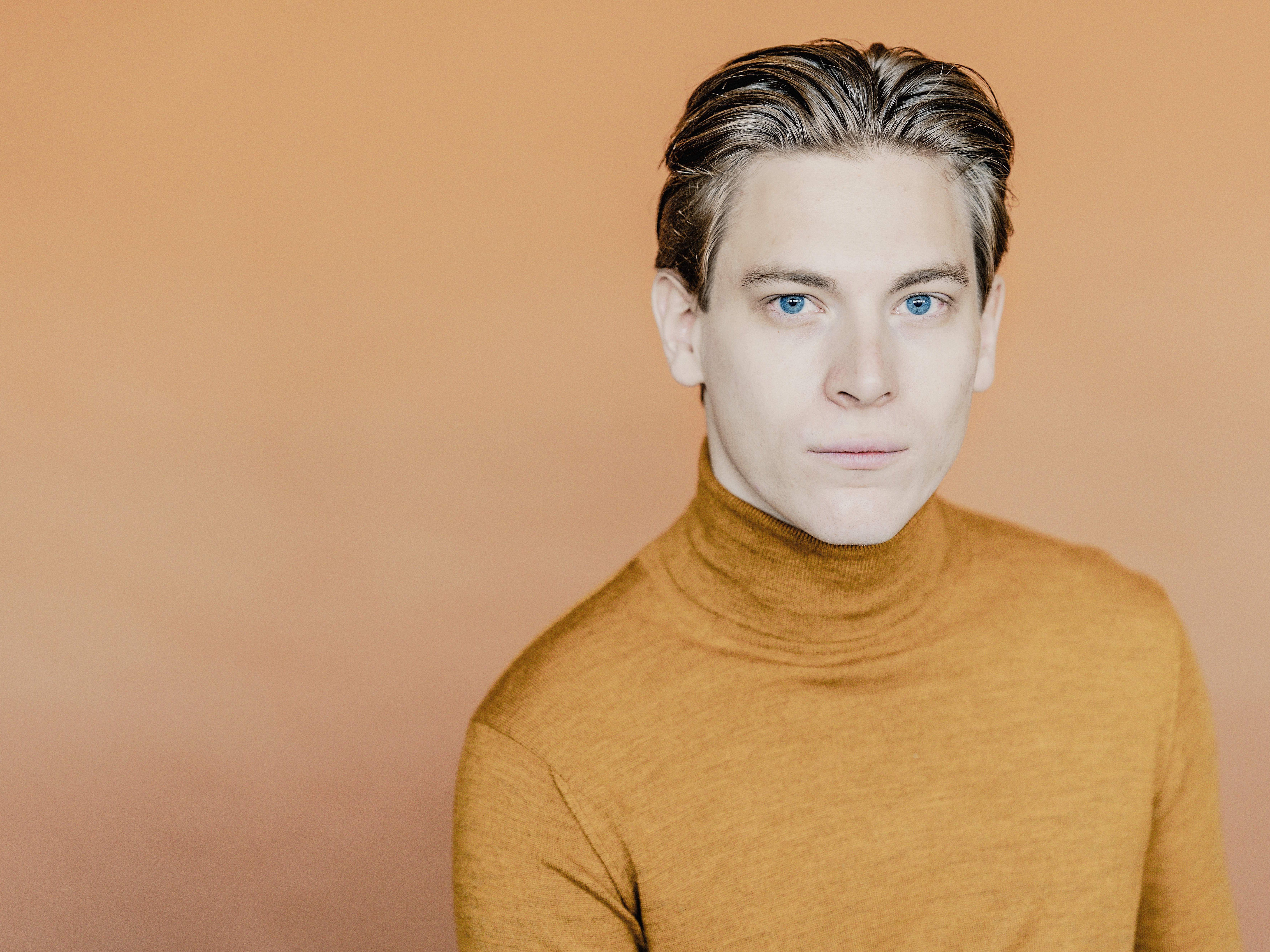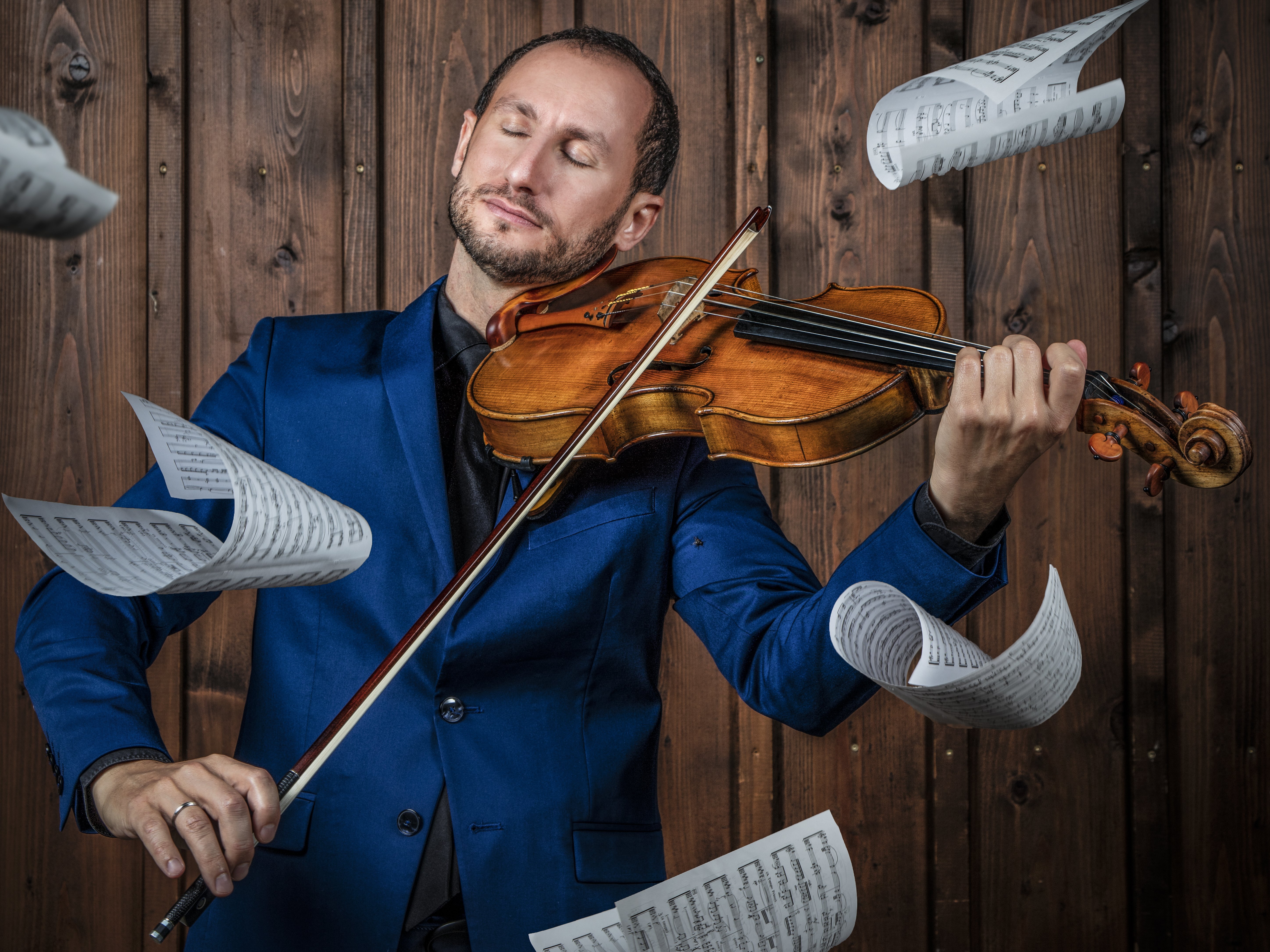
Jakub Józef Orliński won prizes at various breakdance competitions with his perfectly performed “power moves” and “freezes”. Since then, he has dedicated himself mainly to another art: singing. “You think he could be a student. A model. Or a fitness trainer – but only until the handsome guy opens his mouth,” noted the newspaper Bild, and music critic Klaus Kalchschmid raves about the Polish singer’s “angelically floating, unearthly” voice. In November, he will present old masters of baroque music together with the ensemble Il pomo d’oro.
Born in Warsaw in 1990, Jakub Józef Orliński is the son of a painter and a graphic designer. Music played a big role in this artistic family, and Orliński played the piano and sang in the children’s choir from an early age. But before he decided on a singing career, he made a name for himself in the hip-hop scene as an exceptional breakdancer.
He discovered this expressive acrobatic dance when he was 18, has been training regularly ever since, and is a member of the Skill Fanatikz Crew collective in Warsaw. As soon as he is in a city for a longer period of time for an opera production, he looks for contact with the local breakdance scene and trains with them: “Hip-hop culture is very open and breakdancing is a kind of meditation for me.”
Countertenor by chance
So how did the avid breakdancer discover his love for Baroque music – and more importantly, his special qualities as a countertenor? When asked this question, Jakub Józef Orliński exhales deeply and then tells an amusing story: “When I was still singing in the children’s choir, my voice alternated between soprano and alto. After my voice broke, I was a bass-baritone. Together with my fellow choir members, we founded the Gregorianum vocal ensemble and focused at first on the music of the Middle Ages. Then we added Renaissance pieces, and for that we needed five voices, two trebles in addition to the bass, bass-baritone and tenor.
No one wanted to take on these high voices voluntarily, so we had to draw straws. Funnily enough, the two youngest members of the ensemble, my friend Piotr and I, were chosen. I’m sure the draw was rigged, but so what. So we both started singing countertenor parts without knowing what the countertenor voice actually is. Only later, when we had taken part in a workshop, someone said to us: ʻHey, you’re countertenors!ʼ We didn’t know the term at that time, so we thought they wanted to insult us. But then we understood what it was, and started to explore for ourselves how countertenor singing works.”
According to Jakub Józef Orliński, there is nothing exotic about the high male voice of the countertenor, but it is a question of the right singing technique and timbre: “Whether a singer is suitable as a countertenor depends largely on the timbre of his voice, because this cannot be changed by any singing technique. He describes his own voice as a “male alto”.
Orliński has a dark, warm timbre and attaches great importance to making it sound masculine. The basis for this, he says, is an even middle register, “that’s precisely what I've focused on from the beginning, a strong middle register, which I’m very proud of.”
Modelling while studying
He graduated in singing from the Chopin University of Music in Warsaw. But things didn’t start smoothly. The then 18-year-old experienced his first bitter disappointment at the entrance examination, when the jury deemed him unsuitable for the state-funded course. Although this decision was later corrected, Orliński was initially only allowed to embark on expensive, self-financed studies – an enormous challenge for him, especially since he had already left his parents’ home at that time. He had to look for money from sponsors, he worked part-time as a model for a clothing company and had many other jobs to keep his head above water.
While at the university, Jakub Józef Orliński studied in the singing class of the well-known Polish mezzo-soprano Anna Radziejewska. “The fact that she believed in me meant a lot, because my beginnings were anything but promising.”
This can be heard in sound recordings the singer made during his first semester exams at Warsaw Music University, which he himself considers dreadful: “When I have a bad day, I listen to these old recordings and say to myself: ʻHey, Jakub, you've exceeded all your expectations now, it’s all good.ʼ And right away I feel better.”
He has been acclaimed and awarded prizes for his current CD recordings, especially for his Handel performances. “Handel is just the best! What he composed for his singers at that time is ideally suited to my voice and my tessitura.”
Jakub Józef Orliński was already a stylistically subtle interpreter of Handel during his vocal training in Warsaw. He also began his operatic career with several Handel roles, first in his native Poland and later at theatres in Aachen, Giessen, Frankfurt, Zurich, Paris and at the Glyndebourne and Avignon Festivals.
Breakthrough in shorts
There is a funny story connected with the festival in Aix-en-Provence that made the countertenor a media star overnight. In the summer of 2017, the day after the premiere of Francesco Cavalli’s opera Erismena – with Jakub Józef Orliński in the role of Prince Orimeno – he was invited at short notice to a France Musique radio concert to perform the aria “Vedrò con mio diletto” from Vivaldi’s opera Giustino.
“I asked the organisers by text message whether I should dress especially smartly for this performance. And they wrote back: ʻNo, it's not necessary, it's only a radio concertʼ. So I went to the radio concert with my pianist Alphonse Cemin dressed casually. It turned out that the concert was taking place in the open air in front of an audience and was simultaneously being broadcast on Facebook in sound and vision. Of course, it was too late to go back to the hotel and change. Besides, it was insanely hot that day, over 30 degrees in the shade. So we both performed in shorts. People were delighted.”
The performance was a hit on the internet, with over 8 million views on YouTube. “I think I was simply in the right place at the right time,” chuckles Jakub Józef Orliński. “I was lucky – although my coach and mentor Eytan Pessen always says that you have to earn your luck. In that sense, I also contributed something to that luck.”
New York, New York
On the advice of Eytan Pessen, Jakub Józef Orliński continued his vocal training at the Juilliard School in New York in 2015, where he was a student of Edith Wiens for two years. Although Orliński won the Marcella Sembrich International Voice Competition during this time and then took part in numerous other competitions around the world, he doesn’t consider them crucial to advancing his career. For him, competitions were rather “a good opportunity to get to know new places and a lot of interesting people”.
In November 2021, the singer then appeared at the Metropolitan Opera in New York, in a contemporary piece, as Orpheus’ double in Matthew Aucoin’s Eurydice. It was his debut at the famous opera house, which he hadn’t even dared to dream of until then.
He sees his career as a gift. Perhaps the secret of his success lies precisely in this easygoing quality, which he also radiates on stage. Singing is his great passion, and he wants to remain committed to it as long as possible, Jakub Józef Orliński says, knowing full well how quickly even the most beautiful countertenor voices can lose their brilliance and power. He is not afraid of that: “If I feel that my voice is going downhill, I’ll retire from the stage immediately. I don’t want to become an older countertenor who keeps singing after losing his vocal splendour. I’d rather retire from the music business at the right time than have the music business cut me off.”

“It’s never enough, it can never be too much”
The conductor and harpsichordist Emmanuelle Haïm is one of the leading protagonists of early music. Portrait of a baroque icon.

Klaus Mäkelä, the Man Who Knows No Fear
In April, the Finn Klaus Mäkelä makes his debut with the Berliner Philharmoniker with works by Tchaikovsky and Shostakovich.

Antoine Tamestit
Violist Antoine Tamestit has been acclaimed for his warm, richly-coloured tone.
